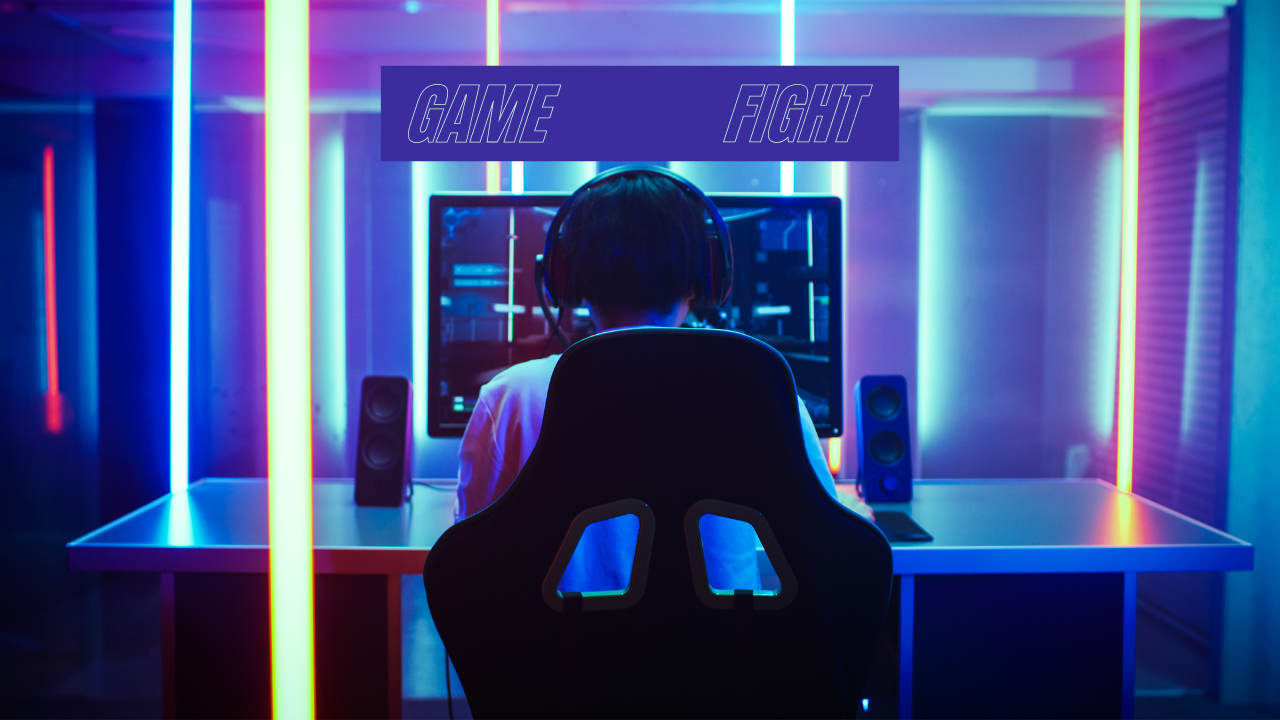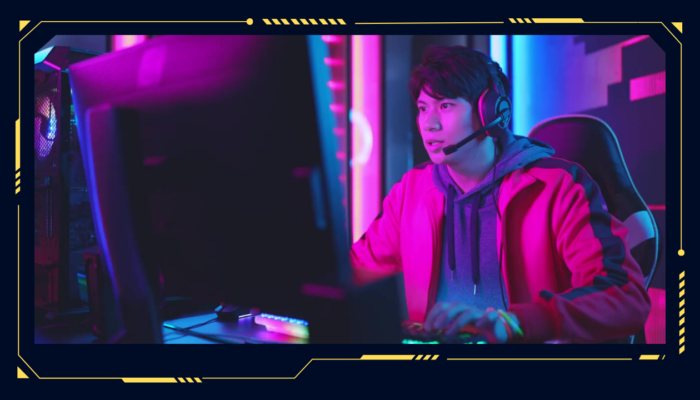Towven.com – Are you tired of feeling stuck at the same level in your favorite games? Do you want to elevate your gaming skills to the next level and start dominating every match you play?
Look no further! In this article, we’re going to unleash the power within you with 10 pro tips guaranteed to take your gaming prowess to new heights.
Whether you’re a casual gamer or a hardcore enthusiast, these tips will transform you into a gaming legend in no time!
1. Master Your Controls
The foundation of any successful gaming journey starts with mastering your controls.
Spend time familiarizing yourself with the layout and functions of your keyboard, mouse, controller, or any other input device you use.
Practice different combinations of movements and actions until they become second nature to you. Just like a musician perfects their instrument, mastering your controls is essential for peak performance in gaming.
2. Understand Game Mechanics
Every game has its unique set of rules and mechanics that govern how it functions. Take the time to understand these mechanics thoroughly.
Whether it’s learning about character abilities, map layouts, or game objectives, a deeper understanding will give you a strategic advantage over your opponents.
Remember, knowledge is power, and in gaming, it can mean the difference between victory and defeat.
Here’s a breakdown of the key aspects involved:
- Core Mechanics: These are the fundamental actions or interactions that players engage in throughout the game. For example, in a platformer game, core mechanics might include jumping, running, and collecting items.
- Rules: Rules define the constraints and boundaries within the game world. They dictate what players can and cannot do, as well as the consequences of their actions. Rules can encompass everything from movement restrictions to combat mechanics to scoring systems.
- Feedback Systems: Feedback mechanisms provide information to players about their actions and progress within the game. This can include visual and auditory cues, such as sound effects, animations, and on-screen indicators. Feedback helps players understand the outcomes of their actions and make informed decisions.
- Progression Systems: Progression systems track the player’s advancement through the game and provide incentives for continued play. This may involve leveling up characters, unlocking new abilities, or accessing additional content as the player achieves certain milestones.
- Balancing: Balancing ensures that the game remains challenging and engaging for players by adjusting various elements such as difficulty levels, resource allocation, and enemy strength. Balancing is crucial for creating a fair and enjoyable experience for players of different skill levels.
- Player Agency: Player agency refers to the degree of control and influence that players have over the game world and their own experiences within it. Games with high player agency often offer multiple paths to success and allow players to make meaningful choices that impact the outcome of the game.
- Emergent Gameplay: Emergent gameplay arises from the interaction of various game mechanics in unexpected ways, leading to unique and unpredictable outcomes. This can result in emergent strategies, tactics, and player experiences that are not explicitly designed by the game developers.
- Tutorial and Onboarding: Effective tutorials and onboarding processes introduce players to the game mechanics in a gradual and intuitive manner, helping them understand how to play and succeed within the game world. Tutorials often teach players basic controls and mechanics before gradually introducing more complex concepts.
By understanding these aspects of game mechanics, developers can design engaging and rewarding gameplay experiences that resonate with players and keep them coming back for more.
Similarly, players can appreciate and enjoy games more fully by recognizing and understanding the mechanics at play.
Read: How Can Sports Help Prevent Health Issues?
3. Practice Regularly
Practice makes perfect, and this holds true for gaming as well. Dedicate regular time to practice and hone your skills.
Whether it’s practicing aim in a first-person shooter or perfecting your strategy in a real-time strategy game, consistent practice is key to improvement.
Set aside time each day to play and focus on areas where you need to improve. Over time, you’ll notice significant progress in your abilities.
4. Learn from the Pros
Why reinvent the wheel when you can learn from those who have already mastered the game? Watch streams, tutorials, or replays of professional players to gain insights into their strategies and techniques.
Pay attention to their decision-making process, positioning, and tactics. Emulate their playstyle and adapt it to your own gameplay.
Learning from the pros is like having a personal mentor guiding you towards success.
5. Analyze Your Gameplay
Self-reflection is crucial for growth in gaming. After each gaming session, take some time to analyze your gameplay critically.
Identify areas where you excelled and areas where you struggled. Did you make any mistakes that cost you the game? What could you have done differently?
By pinpointing your weaknesses and strengths, you can focus your efforts on improvement and become a more well-rounded player.
6. Stay Calm and Focused
Gaming can be intense, especially during competitive matches. However, it’s essential to stay calm and focused, even in the heat of the moment.
Avoid tilting or letting frustration cloud your judgment. Take deep breaths, maintain a positive mindset, and stay focused on your goals.
A clear mind will help you make better decisions and react more quickly to changing situations in-game.
7. Communicate Effectively
Communication is key, especially in team-based games. Whether you’re playing with friends or strangers, effective communication can significantly impact your chances of success.
Use voice chat or in-game communication tools to coordinate strategies, call out enemy positions, and provide support to your teammates.
Clear and concise communication fosters teamwork and can turn the tide of a match in your favor.
8. Upgrade Your Equipment
Having the right gear can make a world of difference in your gaming performance. Invest in high-quality peripherals such as a gaming mouse, keyboard, headset, and monitor.
These tools are designed to enhance your gaming experience and give you a competitive edge. Additionally, ensure that your gaming rig meets the system requirements for the games you play.
A smooth and responsive setup will enable you to perform at your best.
9. Take Breaks and Rest
As much as you love gaming, it’s essential to take breaks and give your mind and body time to rest. Prolonged gaming sessions can lead to fatigue and decreased performance.
Take short breaks between matches to stretch, hydrate, and recharge. Additionally, prioritize getting an adequate amount of sleep each night.
A well-rested gamer is a sharp gamer, ready to tackle any challenge that comes their way.
Read: The Connection Between Health and Sports: A Comprehensive Guide
10. Have Fun and Enjoy the Process
Last but not least, remember to have fun and enjoy the process of gaming. While winning is undoubtedly satisfying, it’s essential to find joy in the journey itself.
Celebrate your successes, learn from your failures, and cherish the camaraderie you share with fellow gamers.
Gaming is more than just a hobby, it’s a passion that brings people together and provides endless opportunities for growth and enjoyment.
Conclusion
In conclusion, unlocking your gaming potential requires dedication, perseverance, and a willingness to learn and improve. By following these 10 pro tips, you’ll be well on your way to dominating any game you play.
Master your controls, understand game mechanics, practice regularly, learn from the pros, analyze your gameplay, stay calm and focused, communicate effectively, upgrade your equipment, take breaks and rest, and above all, have fun!
Remember, the journey to becoming a gaming legend begins with a single step.
FAQs (Frequently Asked Questions)
Q1: How long does it take to become a pro gamer?
Becoming a pro gamer varies depending on factors such as dedication, natural talent, and the complexity of the game. With consistent practice and effort, some gamers can reach a professional level within a few years, while others may take longer.
Q2: Is it necessary to play multiple games to become a pro gamer?
While specializing in one game can lead to mastery, being proficient in multiple games can broaden your skill set and adaptability as a gamer. Experimenting with different genres and titles can also help you discover new strategies and techniques.
Q3: How can I overcome gaming-related fatigue?
To combat gaming-related fatigue, prioritize taking breaks, staying hydrated, getting enough sleep, and practicing good ergonomics. Incorporating physical exercise into your routine can also improve your overall stamina and well-being.
Q4: Are gaming tournaments only for professional gamers?
Gaming tournaments cater to players of all skill levels, from casual enthusiasts to professional gamers. Participating in tournaments can be a fun and rewarding experience, regardless of your level of expertise.
Q5: What should I do if I feel stuck in a game?
If you find yourself stuck in a game, don’t be afraid to seek help from online forums, guides, or tutorials. Sometimes, a fresh perspective or insight from other players can help you overcome challenging obstacles and progress in the game.






